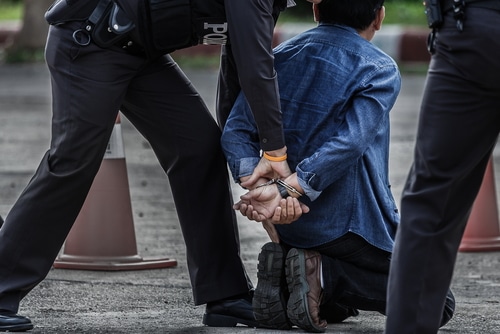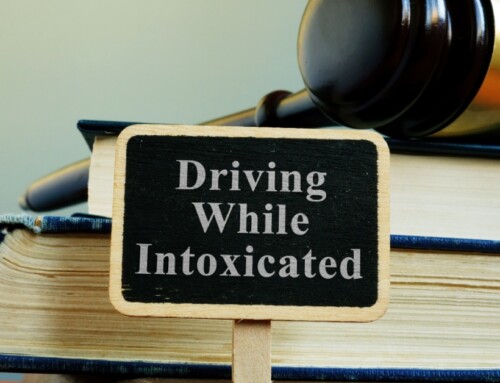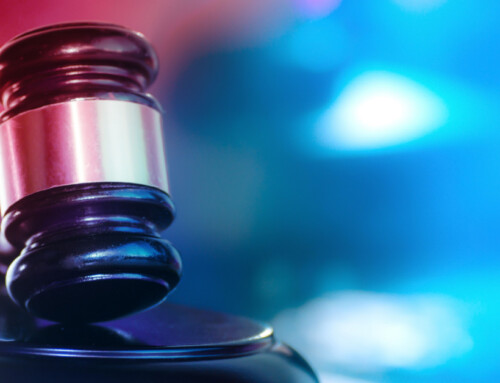If you have been arrested and charged with a crime in North Charleston, you need to be prepared for what happens next. While you have an opportunity to defend yourself, simple mistakes can jeopardize your defense, and if you aren’t careful you could face a conviction unnecessarily.
To make sure you are prepared to defend yourself, there is a lot you need to know. Here are 10 things you need to know if you were arrested in North Charleston:
1. Your Case is Probably Going to General Sessions Court
Most criminal cases in North Charleston are tried in the General Sessions Court. The only exceptions are cases involving low level misdemeanors carrying a maximum sentence of no more than 30 days in jail and a $500 fine.
There are several stages to a criminal case in General Sessions Court—starting with a bond hearing that will be scheduled within 24 hours of your arrest. You need to be careful to protect yourself at each of these stages, and you can (and should) hire a defense lawyer to speak on your behalf in court.
2. You Are Facing Fines and Jail (or Prison) Time
In South Carolina, all crimes carry fines and jail (or prison) time. While most states classify misdemeanors as crimes carrying no more than a year of jail time, in South Carolina a Class A misdemeanor can carry up to a three-year jail sentence. If you are being charged with a felony, you could be facing anywhere from five years to life behind bars.
3. You Are Also Facing Other Consequences
Along with fines and jail time, you could also be facing a variety of other consequences. For example, a conviction could result in probation, community service, loss of driving privileges, liability for court costs, and various other penalties. You may also be at risk for losing your gun rights, your right to vote, and your eligibility for government benefits.
In addition, a criminal conviction in North Charleston will continue to have consequences long after your sentence has been served. You will face challenges when it comes to things like finding a job, finding housing, and getting into school; and, if you are stationed at Joint Base Charleston, a conviction could have consequences for your military career as well.
4. You Need to Make Informed Decisions During the Pre-Trial Procedures
When you appear for your bond hearing, when deciding whether to request a preliminary hearing, and when getting ready for your first and second appearances, it is critical that you make informed decisions. The outcomes of these pre-trial procedures could significantly impact your trial.
Too often, people who have been arrested make the mistake of assuming that things won’t “get serious” until their trial date is around the corner. This is not the case. Criminal defendants need to be smart about protecting themselves from the moment they get arrested, and they need to be extremely careful to avoid irreversible miscues in court.
5. You Are Entitled to Disclosure of Incriminating and Exculpatory Evidence
By law, prosecutors must disclose any evidence that is “material” and “exculpatory” even if you don’t ask for it. However, to obtain the evidence prosecutors intend to use against you, you must request it through the discovery process. While you are entitled to this evidence, obtaining it isn’t always (or often) easy. You will need an experienced defense lawyer to handle this process for you, and you will also need to rely on your lawyer to determine if any of the government’s evidence is inadmissible in court.
6. You Don’t Need to Prove Your Innocence
Another common mistake people make is assuming they will be found guilty if they can’t prove their innocence. In criminal court, you don’t need to prove your innocence, you just need to prevent the prosecution from proving that you are guilty.
All criminal cases are governed by the “beyond a reasonable doubt” standard. This means that the judge or jury must be convinced with 99% certainty that you committed the crime in question. If you (or your defense lawyer) can cast doubt on any element of the government’s case, this can be enough to save you from a guilty verdict at trial.
7. You May Be Eligible for Pre-Trial Diversion
Even if it seems unlikely that you will be unable to prevent the prosecution from meeting its burden of proof, you may still be able to avoid a conviction through pre-trial diversion. South Carolina has several pre-trial diversion programs that are available to defendants under different circumstances. One of the most commonly used examples is pre-trial intervention, which is generally available to first-time non-violent offenders.
8. It Might (or Might Not) Be In Your Interests to Negotiate a Plea Deal
Negotiating a plea deal is another option when the evidence is stacked against you. But, while negotiating a plea deal allows you to avoid trial, it does not allow you to avoid a conviction. As a result, the decision to seek a plea deal is not one to be taken lightly. You will need to make an informed decision with your defense lawyer’s help, and you will need your defense lawyer to negotiate on your behalf.
9. You Will Need an Experienced Defense Lawyer to Protect You
As we’ve mentioned a few times already, to protect yourself during your criminal case in North Charleston, you will need an experienced defense lawyer on your side. Trying to represent yourself isn’t worth it, and it is most likely a mistake you will regret for the rest of your life.
10. Innocent People are Found Guilty, and Guilty People Walk Free
Regardless of the facts of your case, the outcome at trial is unpredictable. Innocent people are found guilty, and guilty people walk free. With this in mind, you should not make any assumptions, but instead work closely with your defense lawyer to make sure you put yourself in the position to obtain the best outcome possible.
Schedule a Free Consultation with North Charleston Defense Lawyer Rad S. Deaton
If you are facing a criminal charge, North Charleston defense lawyer Rad S. Deaton can help protect you. To schedule a free consultation as soon as possible, call 843-225-5723 or inquire online now.






